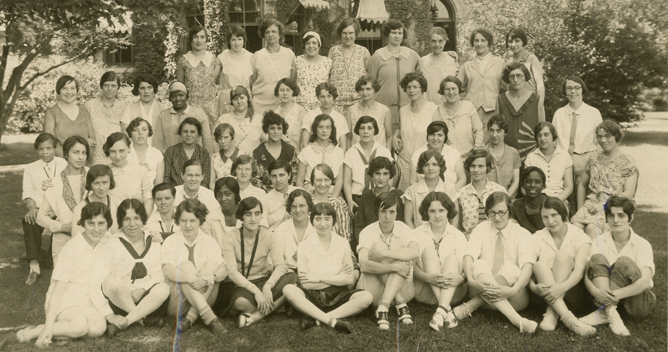What's It All About, Alfie? Conducting Research in a Digital Age
Speaker Bio
Nancy G. Rosoff is Dean for Graduate and Undergraduate Studies at Arcadia University. Her research interests include history of women; women's athletic activity; history of education; gender and popular culture; and American and British cultural history. She has presented her research at the annual meetings of the Women's History Network (UK), the American Historical Association, the History of Education Society (UK), the International Standing Committee on the History of Education, and the Popular Culture/American Culture Association. In 2011, she gave one of the plenary addresses at the History of Education Society annual conference. For further information, see: http://nancyrosoff.wordpress.com/
Abstract
Following on from Carolyn Steedman's idea that "Dust...is about circularity, the impossibility of things disappearing, or going away, or being gone," this paper will consider some of the advantages and, more briefly, disadvantages of conducting research in the digital age. The discussion will be centered around the use of a digital platform to publicize research and connect with those who might be interested in that work.
In collaboration with a colleague in the UK, I am working on a project called "Transnational Femininities: Fictions for Teenage Girls in the UK and US, 1910-1965." Our project would be far more challenging, if not impossible, if we were not in the digital age. There are numerous advantages we enjoy, including the ability to collaborate and communicate, the ability to access digital collections, and the ability to publicize our work. But there are disadvantages as well, including the loss of the synergies of face to face interaction with our sources and each other.
What's It All About, Alfie? Conducting Research in a Digital Age
Following on from Carolyn Steedman's idea that "Dust...is about circularity, the impossibility of things disappearing, or going away, or being gone," this paper will consider some of the advantages and, more briefly, disadvantages of conducting research in the digital age. The discussion will be centered around the use of a digital platform to publicize research and connect with those who might be interested in that work.
In collaboration with a colleague in the UK, I am working on a project called "Transnational Femininities: Fictions for Teenage Girls in the UK and US, 1910-1965." Our project would be far more challenging, if not impossible, if we were not in the digital age. There are numerous advantages we enjoy, including the ability to collaborate and communicate, the ability to access digital collections, and the ability to publicize our work. But there are disadvantages as well, including the loss of the synergies of face to face interaction with our sources and each other.
